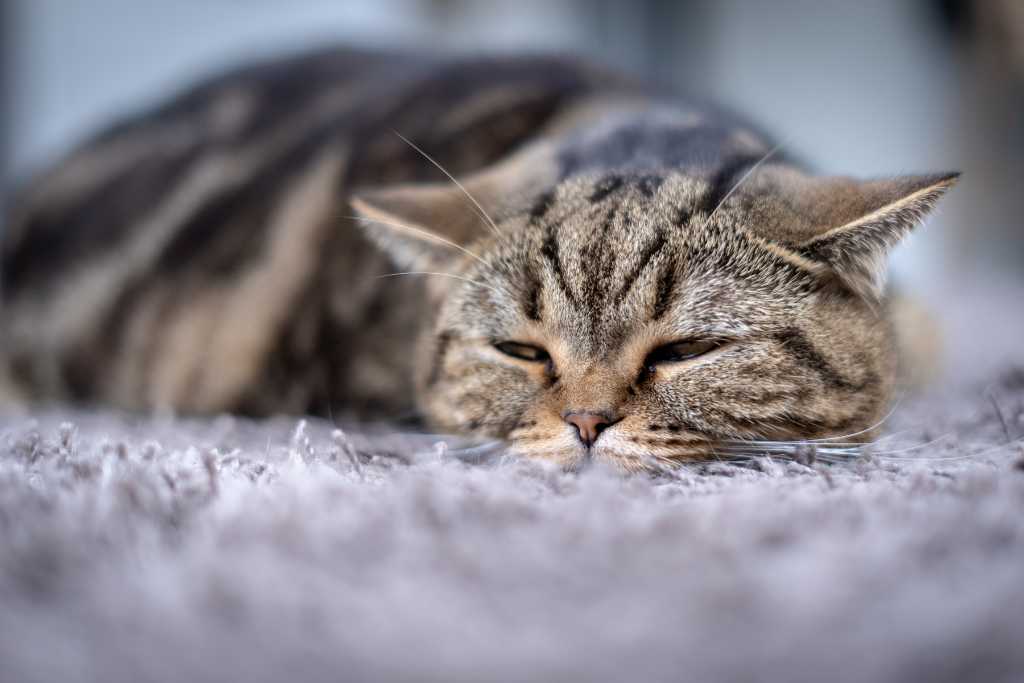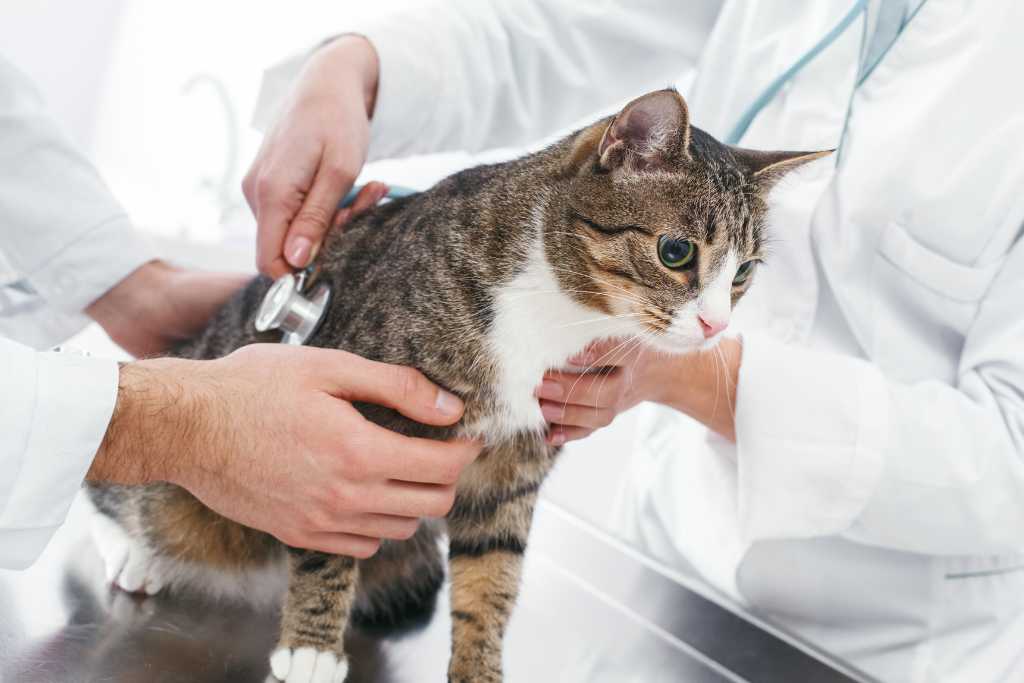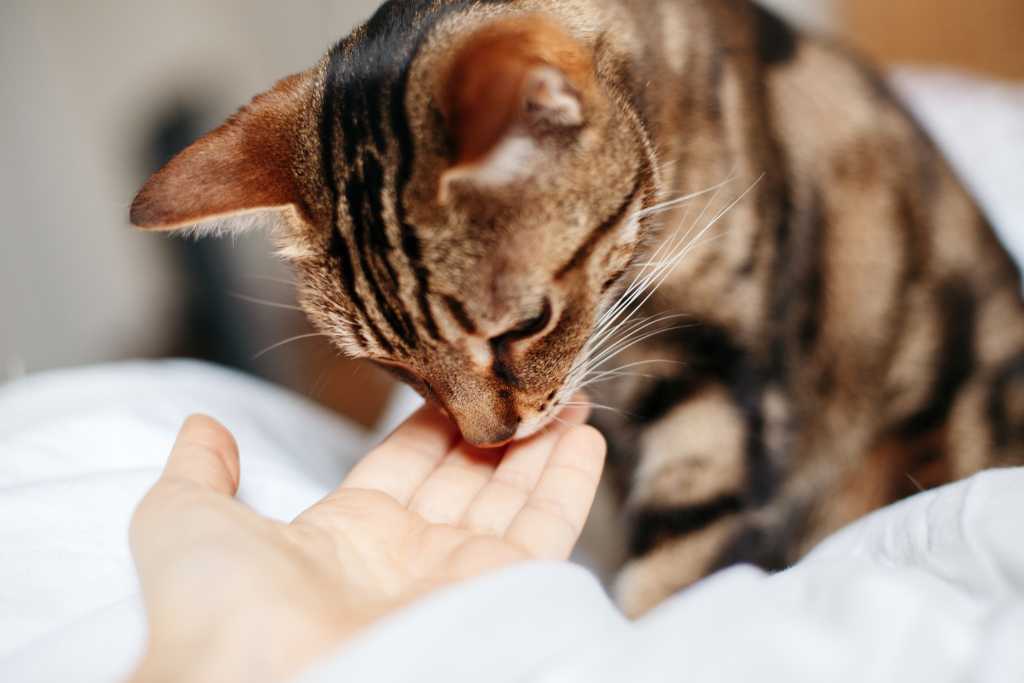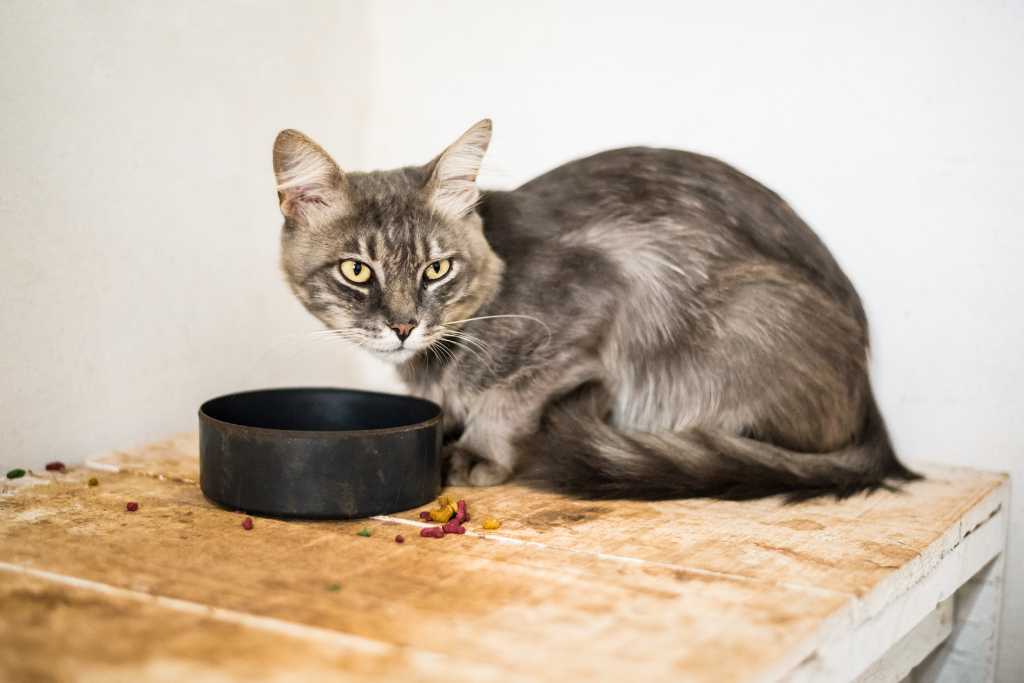$59.00
AWAY FROM FREE SHIPPINGNICE. SHIPPING IS ON US!
$120.00
AWAY FROM FREE GIFTCHOOSE A FREE GIFT DURING CHECKOUT!
YOUR CART IS EMPTY. SHOP NOW.
Cancer is a devastating diagnosis for anyone to receive, and this is no different for cat owners. Unfortunately, cancer is becoming increasingly common in cats, with studies showing that it affects up to one in five cats over the age of 15. Coping with cat cancer can be challenging but there are ways to help your feline friend through this difficult time.

Cancer is a complex and multifaceted disease that affects both humans and animals. In cats, cancer can occur in different parts of the body and can manifest in various forms. Some of the most common types of cancer in cats include lymphoma, squamous cell carcinoma, mammary gland tumors, and fibrosarcoma.
Cancer can be caused by a variety of factors, including genetic predisposition, environmental factors, exposure to toxins, and a weakened immune system. Risk factors for cat cancer include age, breed, and lifestyle factors such as exposure to secondhand smoke, poor diet, and lack of exercise.
Signs and symptoms of cat cancer can vary depending on the type and location of cancer. Some common signs to watch out for include lumps or bumps on the body, changes in appetite or weight, difficulty breathing, diarrhea or vomiting, and lethargy. Diagnosing cat cancer involves a thorough physical examination, as well as diagnostic tests such as blood work, imaging, and biopsy. Early detection is crucial in treating cat cancer, so it's important to take your cat to the veterinarian as soon as you notice any signs or symptoms.
Once a diagnosis has been made, your veterinarian will discuss treatment options with you. Depending on the type and stage of cancer, treatment options may include surgery, chemotherapy, radiation therapy, or immunotherapy. Your veterinarian will work with you to develop a treatment plan that's tailored to your cat's individual needs.
Understanding cat cancer is an important first step in coping with the disease. By being aware of the risk factors, signs, and symptoms, cat owners can take proactive steps to detect and treat cancer early and provide their feline friends with the best possible care.

Dealing with a cancer diagnosis in your cat can be an overwhelming and emotional experience. Coping with your feelings and emotions can be just as important as providing care for your feline friend. Here are some ways to find emotional support when dealing with cat cancer:
Connect with other pet owners who have experienced cat cancer
Online forums or local support groups can provide a safe and supportive environment to share your experiences and concerns with other cat owners who are going through similar situations.
Talk to a professional
A therapist or counselor can help you navigate the emotional challenges of caring for a cat with cancer, and provide you with tools to cope with stress, anxiety, and depression.
Practice self-care
It's important to prioritize your own physical and emotional well-being when caring for a cat with cancer. Make sure to take time for yourself, engage in activities you enjoy, and practice stress-reducing techniques such as meditation.
Seek comfort from your cat
Cats can be a source of comfort and companionship during difficult times. Spending time with your cat, petting them, and providing them with love and attention can be a mutually beneficial way to cope with the stress of cat cancer. Remember that it's normal to feel a range of emotions when dealing with a cancer diagnosis in your cat, including sadness, fear, anger, and guilt. It's important to acknowledge and validate these feelings and seek help and support when needed. With the right emotional support, you can help your cat through her cancer journey while also taking care of yourself.

Here are some practical tips to help make the process more manageable:
Follow your veterinarian's treatment plan
Your veterinarian will develop a treatment plan that's tailored to your cat's individual needs. It's important to follow this plan closely to ensure that your cat receives the best possible care.
Keep your cat comfortable
Cancer treatment can be taxing on a cat's body, so it's important to keep them as comfortable as possible. Make sure they have a warm and quiet place to rest and provide them with soft bedding and plenty of fresh water. This warm, plushy FuzzYard LIFE Cat Cubby Bed is a good choice for cats that prefers some privacy during rest and recovery time.
Monitor your cat's diet
A healthy and balanced diet is important for cats with cancer, as it can help maintain their strength and energy levels. Talk to your veterinarian about the best diet for your cat, and make sure to monitor their food intake closely. Chemotherapy drugs can cause nausea and vomiting, which can lead to loss of appetite and weight loss. Offer her small but frequent meals throughout the day. Research suggests that nutrition for cats with cancer should contain no more than 25% carbohydrate on a dry matter (DM) basis. Unfortunately, most dry cat food contains far higher carbohydrate content. Switching to freshly, cooked diets or canned cat food is often a better option. These cat foods have much lower carbohydrate content. If feeding canned food, choose premium canned food like this Feline Natural Beef Feast Grain-Free Wet Cat Food that is all-natural and does not contain artificial ingredients, additives, preservatives, or gelling agents.
Some cats may need special therapeutic diets. Your veterinarian will help you choose a nutrient profile, formulation, quantity, and delivery method (particularly if there is a feeding tube involved) that fits your cat's specific needs.

Monitor your cat’s water intake
Cancer treatment can have side effects which include nausea, vomiting, and diarrhea, and these side effects can lead to dehydration if fluid intake is not closely monitored and maintained. Talk to your veterinarian about ways to manage these side effects, such as anti-nausea medication.
Additionally, some chemotherapy drugs can affect the kidneys or cause electrolyte imbalances, which can also contribute to dehydration. If you notice your cat not drinking enough, try placing her water bowl next to her food bowl. When water is placed next to their food, cats may be more likely to drink the water while eating. Setting up multiple drinking stations around the house may encourage your cat to drink more. Use a water dispenser with a graduated scale like this Stefanplast Chic Food & Water Dispenser For Cats & Dogs to monitor your pet's overall water consumption. Adding bone broth to her food is another way to add more liquid to her diet.
Provide plenty of love and affection
Cats with cancer may feel scared or anxious, so it's important to provide them with plenty of love and affection. Spend time with your cat, pet them, and talk to them in a calm and soothing voice.
Some cats love to cuddle up with their people. Cuddling helps to reduce stress in both humans and cats. Cats want to cuddle for warmth, safety, and protection. They learn to cuddle in their kittenhood and carry this behavior well into adulthood. If you want to slip in some extra time for cuddle sessions, your cat is likely to approve of that change.
You can also consider giving your cat a plush toy to snuggle with. The plush toy can become their snuggle partner. It can be a security object to help them cope with stress.

Maintain your cat’s lifestyle
Cats are creatures of habit. During your cat’s battle with cancer, you can help her thrive by sticking to familiar routines. That means maintaining the same times for eating, sleeping, and playing as before the cancer diagnosis. To some cats, changes to their daily routine can cause further stress and anxiety. By keeping your cat's routine consistent, you can more easily monitor their health and notice any changes in behaviour or appetite. This can help you catch any potential health problems early on and address them with your veterinarian. So, try to maintain your cat’s lifestyle as much as possible.
Coping with cat cancer can be a challenging and emotional experience for both cats and their owners. However, with the right support and care, cats can often receive effective treatment and continue to enjoy a good quality of life. It's important to work closely with your veterinarian to understand the type and stage of your cat's cancer and develop a comprehensive treatment plan that addresses their individual needs. The whole experience can be overwhelming, and it's normal to experience a range of emotions, including sadness, anxiety, and stress. Seeking support from friends, family, or a support group can help you navigate these emotions and provide a safe space to talk about your feelings.

Comments will be approved before showing up.



